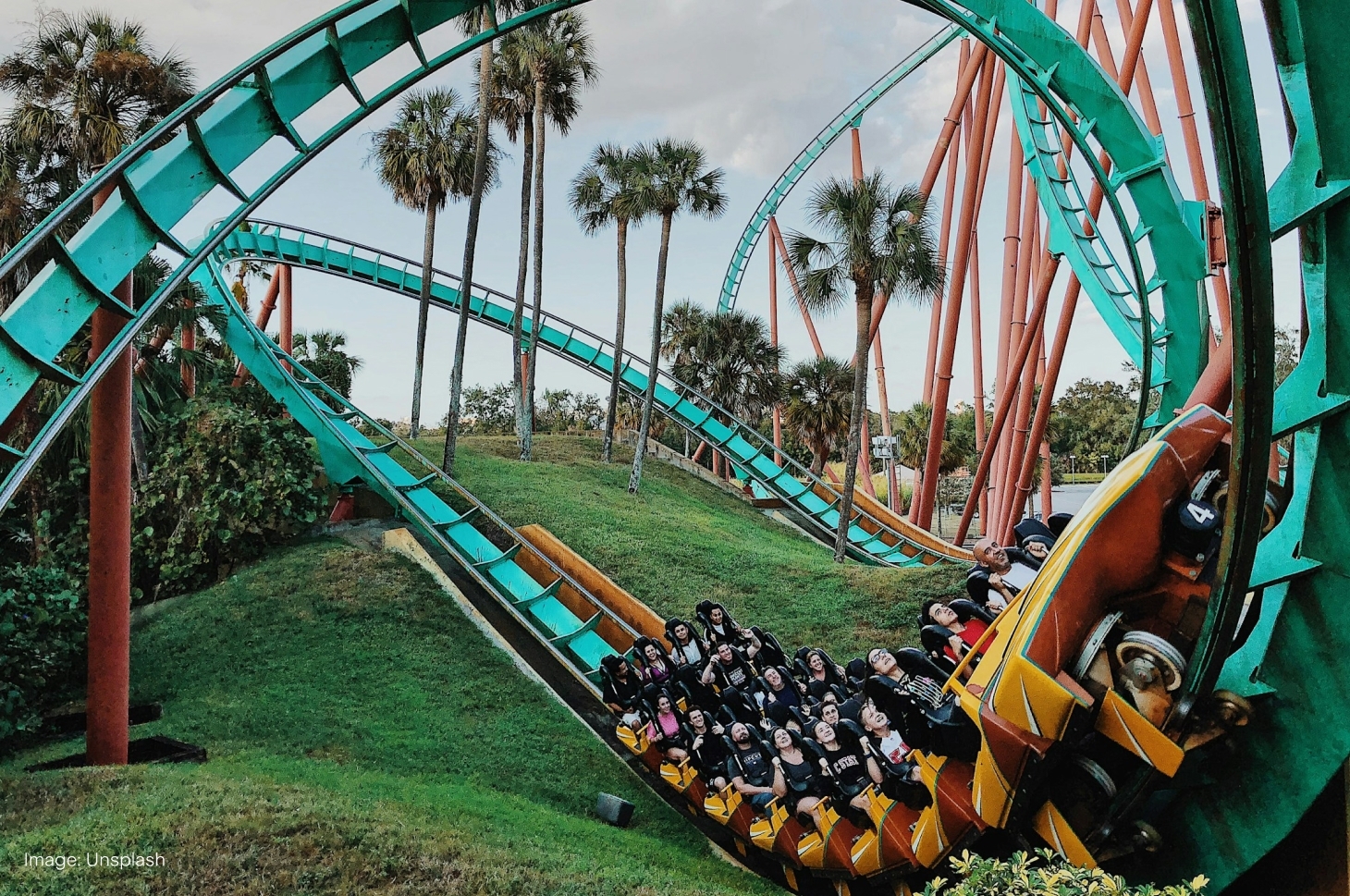
Amused
Theme parks transport visitors to realms of adventure and excitement. Creating these immersive experiences is big business.
During school holidays, many of us are reminded – either through kids or our own memories – of the joys of escaping ordinary life in a theme park. These attractions may have evolved from large parks with simpler eating and entertainment options, but today they’re a huge industry.
The modern theme park presents an immersive environment that engages all the senses with high levels of attention to detail. Visitors enter a carefully designed universe with specific smells, background music and a bustling energy from crowds. There’s typically something for everyone, from thrilling roller coasters to family-friendly carousels and encounters with favourite movie characters.
Even innovations in virtual and augmented reality don’t seem to threaten the appeal of theme parks – which instead incorporate new technologies into their offerings. Guests at Super Nintendo World ($NTDOY), for example, can take part in an AR Mario Kart ride.
Disney ($DIS) brings its pioneering entertainment empire to life across multiple continents. Its Parks & Experiences segment brought in around US$7.5b in the latest quarter, and US$60b are expected to be invested into the area over the next decade. Expansion plans for its original resort in Anaheim, California, will become Disney’s biggest project yet. Indeed, founder Walt Disney thought that Disneyland would never be completed, as this would signal a lack of imagination.
The conglomerate benefits immensely from its extensive library of intellectual property (IP), which serves as inspiration and attracts a ready army of fans. This will play an important role when a new neighbourhood rival opens doors: Comcast ($CMCSA) is launching its Universal Epic Universe in Orlando, Florida next year. Harry Potter, Super Mario, Frankenstein and How to Train Your Dragon will all have their own worlds there.
The differences in IP between these two companies are not clean cut. While Disney owns the Marvel universe, Comcast’s Universal theme parks have rights to some of its characters like Spider-Man and the X-Men. Both have current licences for The Simpsons. Meanwhile, places like Ferrari World ($RACE) and Legoland show that building a park focused on a single brand is also possible.
The merger between Six Flags ($FUN) and Cedar Fair indicates that others are also stepping up their game. The newly combined company brings together 51 venues worth an estimated US$8b. Content deals with Warner Bros. ($WBD) and Netflix ($NFLX) are already in place, and enthusiasts are hoping to see riveting new experiences soon.
As for shareholders of the sector, they would no doubt prefer a smoother ride, leaving the ups and downs for the actual roller coasters.

